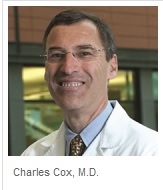Scientists at the Perelman School of Medicine, University of Pennsylvania have identified proteins that regulate adult stem cells that appear to be key to the growth of hair follicles. By manipulating the so-called Wnt proteins, it may be possible to prompt hair growth of dormant hair follicles or prevent the growth of unwanted hair.
“While more research is needed to improve our understanding of this pathway, our results suggest that therapeutics capable of decreasing levels of [Wnt action] in the skin could potentially be used to block growth of unwanted hair, and/or to treat certain skin tumors,” said Sarah Millar, who helped conduct the study published in the journal Cell Stem Cell referenced below.
“Conversely, if delivered in a limited, safe and controlled way, agents that activate Wnt signaling might be used to promote hair growth in dormant hair follicles in conditions such as male pattern baldness.”
Millar’s team examined the functions of Wnt proteins, which are small molecular messengers that convey information between cells. By manipulating Wnt signaling in an animal studies, the team found that hair growth could be prevented or stimulated.
Source: http://www.cell.com/cell-stem-cell/abstract/S1934-5909(13)00449-9






